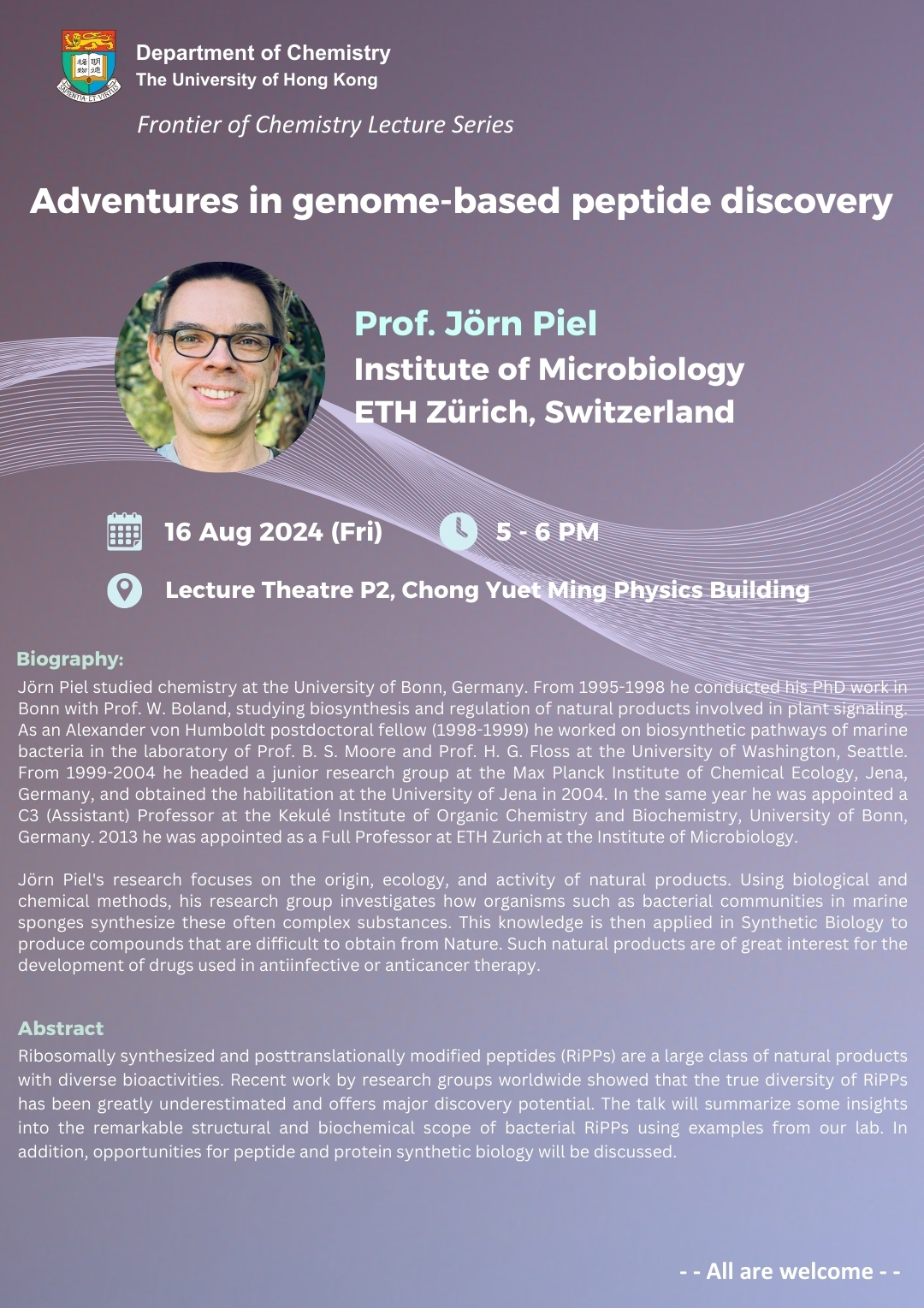| Date | 16 Aug 2024 |
| Time | 5:00 pm - 6:00 pm (HKT) |
| Venue | Lecture Theatre P2, Chong Yuet Ming Physics Building |
| Speaker | Prof. Jörn Piel |
| Institution | Institute of Microbiology, ETH Zürich, Switzerland |
 Title:
Title:Adventures in genome-based peptide discovery
Schedule:
Date: 16th August, 2024 (Friday)
Time: 5 - 6 pm (HKT)
Venue: Lecture Theatre P2, Chong Yuet Ming Physics Building
Speaker:
Prof. Jörn Piel
Institute of Microbiology
ETH Zürich, Switzerland
Biography:
Jörn Piel studied chemistry at the University of Bonn, Germany. From 1995-1998 he conducted his PhD work in Bonn with Prof. W. Boland, studying biosynthesis and regulation of natural products involved in plant signaling. As an Alexander von Humboldt postdoctoral fellow (1998-1999) he worked on biosynthetic pathways of marine bacteria in the laboratory of Prof. B. S. Moore and Prof. H. G. Floss at the University of Washington, Seattle. From 1999-2004 he headed a junior research group at the Max Planck Institute of Chemical Ecology, Jena, Germany, and obtained the habilitation at the University of Jena in 2004. In the same year he was appointed a C3 (Assistant) Professor at the Kekulé Institute of Organic Chemistry and Biochemistry, University of Bonn, Germany. 2013 he was appointed as a Full Professor at ETH Zurich at the Institute of Microbiology.
Jörn Piel's research focuses on the origin, ecology, and activity of natural products. Using biological and chemical methods, his research group investigates how organisms such as bacterial communities in marine sponges synthesize these often complex substances. This knowledge is then applied in Synthetic Biology to produce compounds that are difficult to obtain from Nature. Such natural products are of great interest for the development of drugs used in antiinfective or anticancer therapy.
Abstract:
Ribosomally synthesized and posttranslationally modified peptides (RiPPs) are a large class of natural products with diverse bioactivities. Recent work by research groups worldwide showed that the true diversity of RiPPs has been greatly underestimated and offers major discovery potential. The talk will summarize some insights into the remarkable structural and biochemical scope of bacterial RiPPs using examples from our lab. In addition, opportunities for peptide and protein synthetic biology will be discussed.
- - ALL ARE WELCOME --
